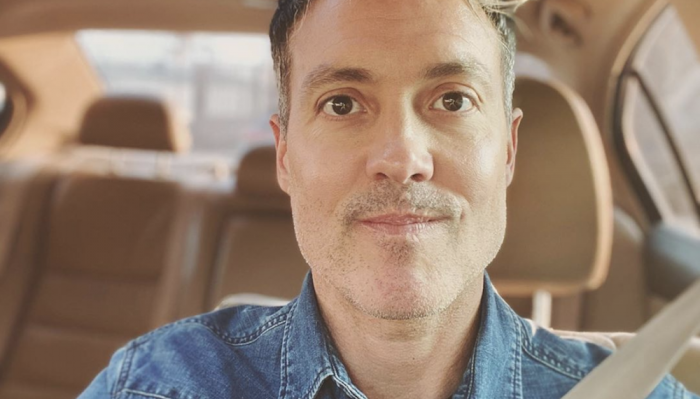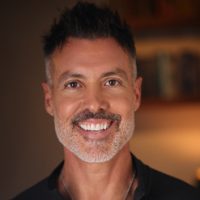The most important step any of us can take to unlearn thought systems based on fear, including queerphobia (a term used to describe all LGBTQ-related bias), is to look within our own life and see what fearful messages we’ve absorbed from dominant culture.
For example, being gay and growing up in a heteronormative world, the biggest contribution I could ever make to the LGBTQ community is to become aware of how internalized queerphobia has manifested itself in my life.
What is internalized queerphobia, and why is it important to address, especially during the LGBTQ Pride season?
Internalized queerphobia is when we subconsciously absorb shameful messages we learn as children about what it means to be LGBTQ. It’s queerphobia from the outside we take inside. Once internalized, it becomes shame an LGBTQ person carries inside about themselves, others, or the LGBTQ community as a whole—conscious or subconscious. It’s safe to say, the young people in our lives have likely internalized a shameful message about being LGBTQ to a certain degree.
If any of us—LGBTQ or not—has guilt or shame, we may subconsciously seek punishment. That could look like many things, but includes unhappiness, unhealthy relationships, substance abuse, and other self-deprecating behavior. Everything we hear, see, and perceive, whether at home, in the media, on the playground, or from a non-affirming religion, can seep inside. Left unaddressed, it can negatively affect our life, our choices, and our children.
It doesn’t matter how out an LGBTQ person is, queerphobia is like a disease, and self-limiting messages can still rear their ugly head if we don’t keep careful watch over our thoughts, feelings, actions, and beliefs.
In 2008, I moved to Los Angeles to work for a national LGBTQ organization. After coming out of the closet, I wanted to make a difference in the LGBTQ community’s fight for equality. It became my mission to help change the negative stereotypes people had of the LGBTQ community.
Since my move to LA, I’ve either worked for or volunteered with most of the local and national LGBTQ organizations. I’ve also worked at an LGBTQ Public Relations agency and in West Hollywood at a popular gay bar—which is the equivalent of grad school for human psychosocial behavior.
After almost a decade of doing LGBTQ advocacy work, I realized that my fight to change everyone’s mind about the LGBTQ community was actually an internal fight I was experiencing within myself. Only when I began to peel away layers of the onion did I uncover the pervasive effects of heteronormativity. For instance, why did the inflection of my voice sometimes change depending on where I was and with whom I was speaking?
When I first started to explore spirituality, the common theme among all the books I read and lectures I attended was that spiritual development isn’t so much about trying to understand as it is about unlearning.
It wasn’t until the honest conversations I had with myself, though, that my process of unlearning really began. I needed to become willing to be uncomfortable and ask myself difficult, albeit necessary, questions.
Despite having a strong spiritual foundation, if I go too long without meditating or attending Al-Anon meetings, I fall back into reactive behavior. The same can be said for preventing heteronormativity’s perpetuation of queerphobia.
The process of unlearning is continuous. It’s also a journey of progress, not perfection. As such, part of healing queerphobia, in all of its forms, is for members of the LGBTQ community to continue asking ourselves personal questions, like:
Does drug and alcohol use ubiquitous with our community come from a place of self-liberation, or is it anesthetizing unhealed trauma and shame we don’t want to face?
Do I act differently depending on where I am and with whom I’m speaking?
Do I ever lower my voice when I use the word “gay” or “transgender” outside of LGBTQ spaces? Or do I feel uncomfortable when a friend talks about their same-sex relationship in public?
Do I use sarcasm as a mask to try to hide from being seen?
Do I take refuge in judgement and criticize other members of the LGBTQ community because of what I unknowingly judge about myself?
Do I filter what I contribute to a conversation in order to blend into heteronormativity?
Do I choose not to participate in group conversations because I don’t want to reveal details about my personal life?
Do I hold myself to someone else’s standard of masculinity or femininity? If so, whose? And what are some of the messages I hear?
While it’s important to hold in my heart the progress our community has made, as someone who is committed to healing queerphobia for future generations, it’s also my desire to lovingly name the individual work each of us has to do with regard to LGBTQ inner-equality.
A friend recently told me that the best tool to expand consciousness is to ask questions. He said, “Asking questions helps to increase our level of awareness and broaden our belief system.”
Asking questions also inspires action, and where there is action, therein lies the change.
For every young person who is out, there are others still in the closet. Whether LGBTQ ally or member of the community, a powerful question each of us can ask to dismantle fear-based belief systems within ourselves, our families, and our communities is:
If my life was the only book that a young person ever read, what would I want it to teach?









Read 7 comments and reply